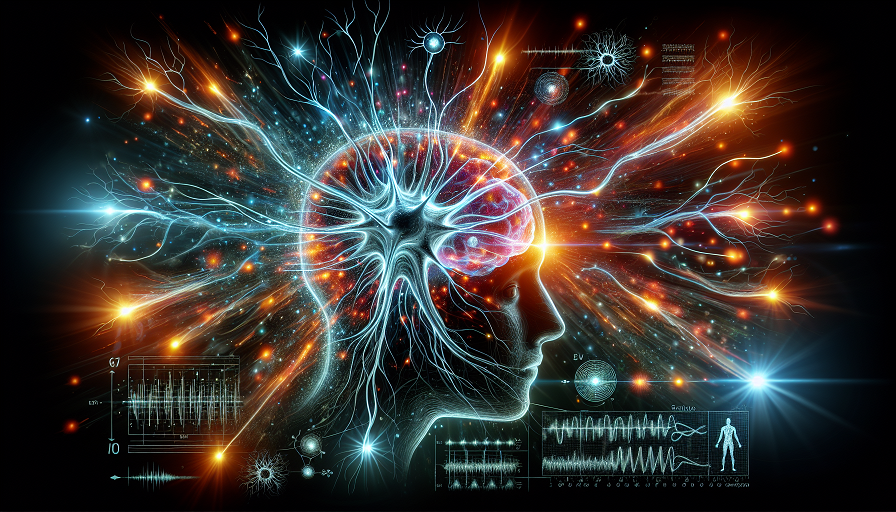
In our quest for mental wellness, we often focus on therapy, exercise, and medication, overlooking the profound impact of nutrition. One essential mineral that plays a pivotal role in mental health is magnesium. Here we look at how magnesium influences our mood, the consequences of deficiency, and practical ways to ensure adequate intake for optimal mental well-being.
Contents
The Crucial Role of Magnesium in Mental Health
Magnesium is involved in over 300 biochemical reactions in the body, many of which directly affect brain function and mood regulation. Its contributions to mental health include:
Neurotransmitter Regulation
Magnesium helps regulate neurotransmitters, the brain’s chemical messengers that transmit signals between nerve cells. It modulates the activity of excitatory neurotransmitters, such as glutamate, and enhances the production of inhibitory neurotransmitters like gamma-aminobutyric acid (GABA). This balance prevents overstimulation of the brain, promoting relaxation and a stable mood.
Stress Response Modulation
The body’s response to stress involves the hypothalamic-pituitary-adrenal (HPA) axis, which controls the release of cortisol, the primary stress hormone. Magnesium plays a role in regulating the HPA axis, helping to prevent excessive cortisol production. Elevated cortisol levels are associated with increased anxiety and depression, so maintaining adequate magnesium levels can help mitigate these effects.
Inflammation Reduction
Chronic inflammation has been linked to various mental health disorders, including depression. Magnesium possesses anti-inflammatory properties that can help reduce the production of pro-inflammatory cytokines, thereby potentially alleviating depressive symptoms.
Consequences of Magnesium Deficiency on Mental Well-being
Insufficient magnesium levels can have significant repercussions for mental health. Some of the potential consequences include:
Increased Anxiety
Magnesium deficiency can lead to heightened anxiety levels. Studies have shown that low magnesium intake is associated with increased anxiety symptoms, possibly due to its role in regulating neurotransmitter activity and the stress response system.
Depressive Symptoms
There is a notable correlation between low magnesium levels and the prevalence of depression. Research indicates that individuals with lower dietary magnesium intake are more likely to experience depressive symptoms. Supplementation has been observed to improve mood in some individuals, suggesting a potential therapeutic role for magnesium in depression management.
Sleep Disturbances
Magnesium is essential for maintaining healthy sleep patterns. It influences the regulation of melatonin, the hormone responsible for controlling sleep-wake cycles, and activates GABA receptors, promoting relaxation. Deficiency can lead to insomnia and poor sleep quality, which are often linked to mood disorders.
Ensuring Adequate Magnesium Intake
To support mental well-being, it’s crucial to maintain sufficient magnesium levels. This can be achieved through dietary sources and supplementation when necessary.
Dietary Sources of Magnesium
Incorporating magnesium-rich foods into your diet is an effective way to boost intake. Some excellent sources include:
- Leafy Green Vegetables: Spinach, kale, and Swiss chard are high in magnesium.
- Nuts and Seeds: Almonds, cashews, pumpkin seeds, and sunflower seeds provide substantial amounts.
- Whole Grains: Brown rice, quinoa, and oats are good sources.
- Legumes: Black beans, chickpeas, and lentils offer significant magnesium content.
- Fatty Fish: Salmon and mackerel not only supply magnesium but also beneficial omega-3 fatty acids.
- Fruits: Bananas and avocados are both rich in magnesium.
Supplementation
If dietary intake is insufficient, supplementation can be considered. It’s important to choose a high-quality supplement to ensure optimal absorption. Performance Lab’s Magnesium supplement, for instance, utilizes NutriGenesis® technology to provide magnesium in a nature-identical form, enhancing bioavailability.
Consultation with Healthcare Professionals
Before starting any supplementation, it’s advisable to consult with a healthcare provider to determine the appropriate dosage and to ensure it doesn’t interact with other medications or conditions.
Magnesium plays a vital role in mental health, influencing neurotransmitter function, stress response, and inflammation. Ensuring adequate intake through diet and, if necessary, supplementation can help elevate mood, reduce anxiety, and improve overall mental well-being. By prioritizing magnesium intake, individuals can take a proactive step toward better mental health.

